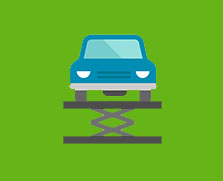Why are my rear brake pads wearing so fast?
I've done just over 30k miles in my SEAT Exeo, but I am getting what I consider to be unusual brake pad wear. The front brake pads are 20 per cent worn, if that, yet the rears are more than 80 per cent worn and need replacing.
I asked why this was and the SEAT Technician said its normal for the rear brake pads on bigger cars to wear more quickly, but I wonder if the rear brake calipers are sticking? Should I press SEAT to examine the brakes under warranty?
All brake discs corrode all the time the vehicle is left standing, particularly in rain or at times of the year when condensation is heavy. It's worst in the winter due to the action of road salt. 95 per cent of a car's braking is on the front, and the rears only come into play to balance the car during heavy braking.
So every morning you drive your car, the braking at the front cleans the night's surface corrosion off the front discs, but little or none is cleared off the rear discs. That corrosion gradually eats into the rear discs and they become grooved, leading to heavy rear disc and pad wear.
So every morning you drive your car, the braking at the front cleans the night's surface corrosion off the front discs, but little or none is cleared off the rear discs. That corrosion gradually eats into the rear discs and they become grooved, leading to heavy rear disc and pad wear.
Answered by Honest John on




